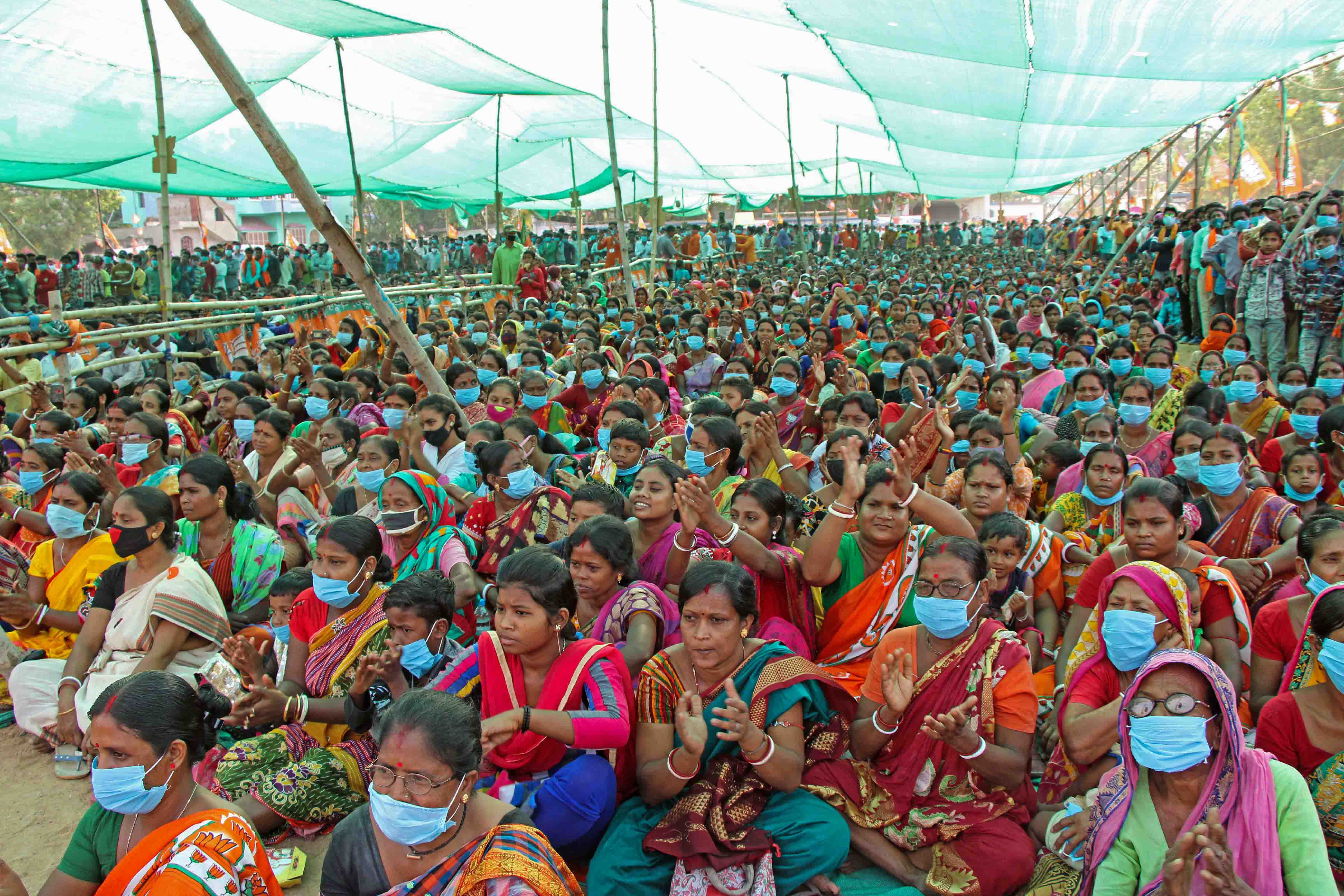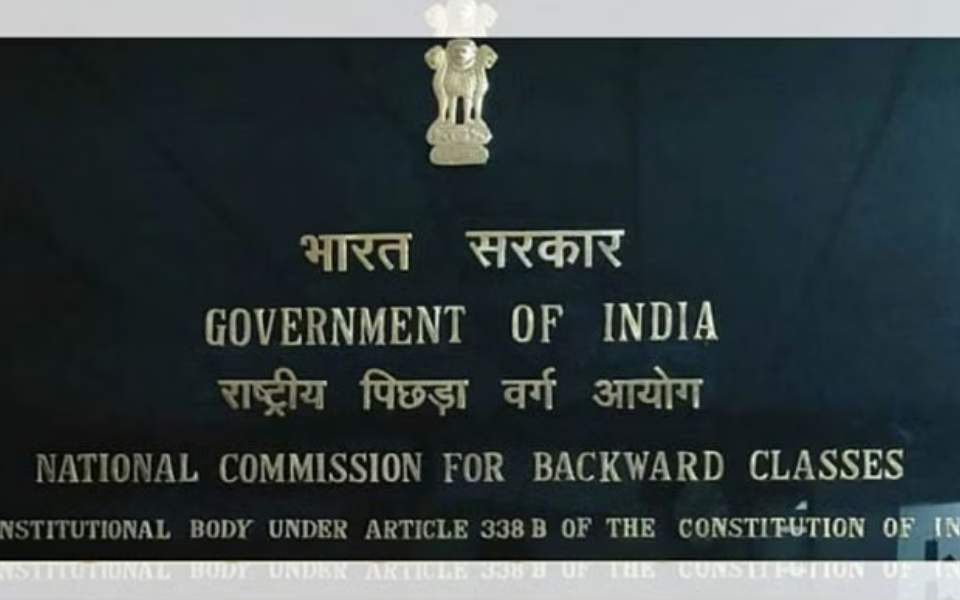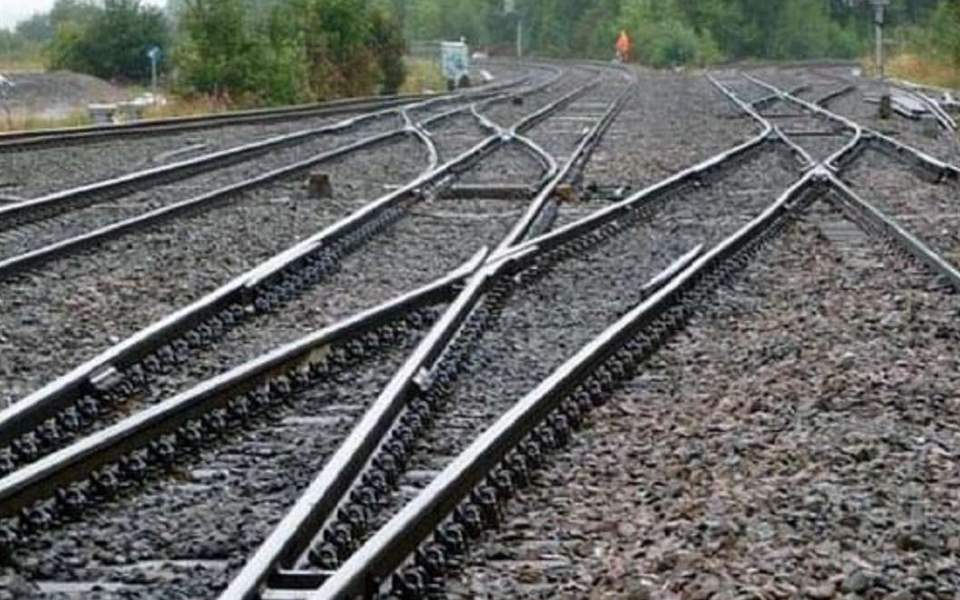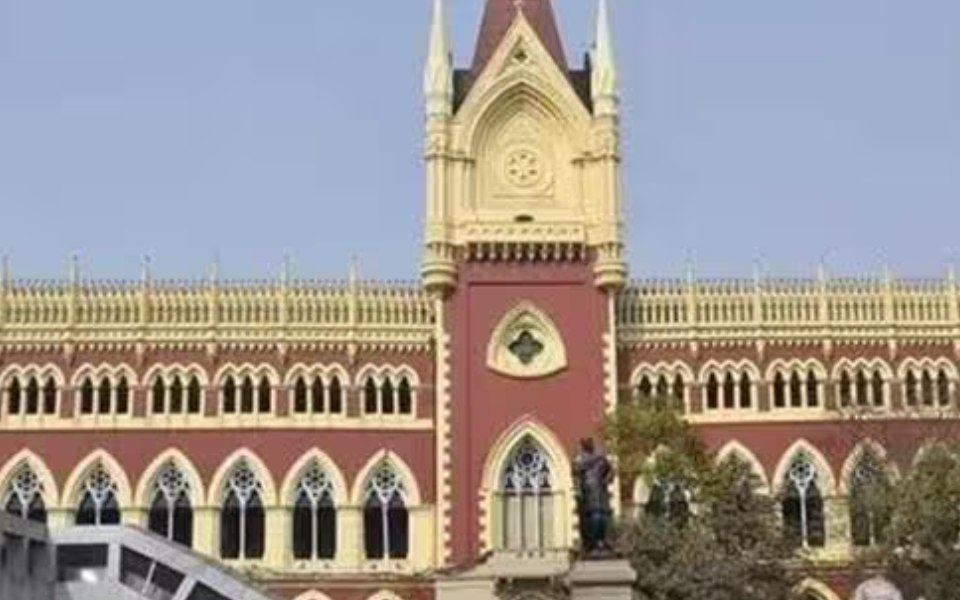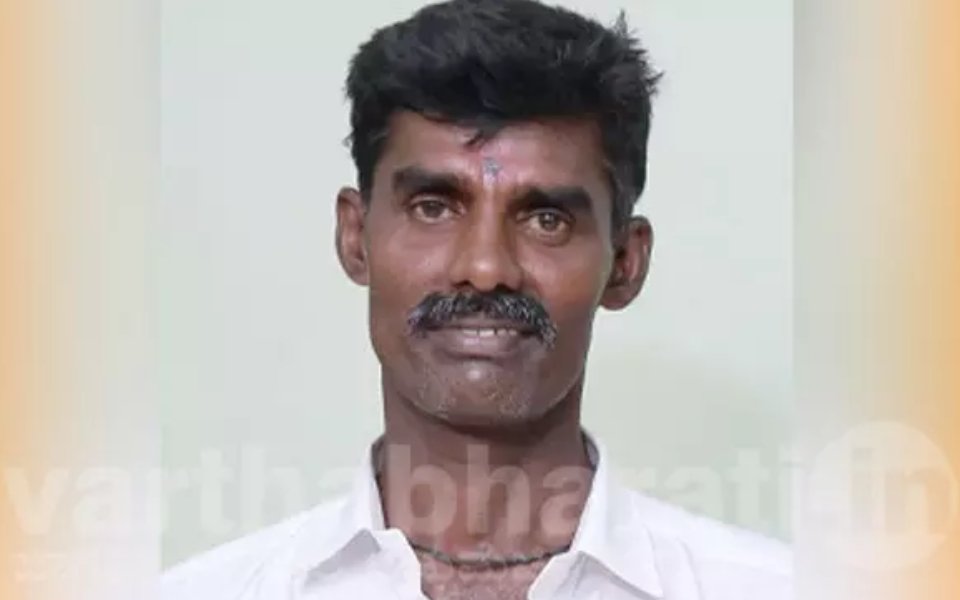Kolkata, May 16: Experts believe a prolonged election campaign helped spread the Covid pandemic in Bengals largely rural hinterland.
Since the announcement of elections on February 26, till Saturday the number of active cases in West Bengals districts other than Kolkata, increased 48-times.
Most medical professionals blame the mass gatherings at election rallies for the huge surge in the disease.
On February 26, when the Election Commission announced the poll dates, West Bengal's number of active Covid cases was just 3,343, while it stood at 1.32 lakh on Saturday, a near 40-fold increase.
However, the spread in districts, other than Kolkata, is far more. From a mere 2,183 active cases on February 26, the number of active cases on May 15 has risen to 1.06 lakh, a worrying 48-fold increase.
"There is no doubt that the reason behind this surge of Covid in rural Bengal is the prolonged election process.
The reason is nothing but political and only political," Dr Amitava Nandi, a senior expert in tropical diseases and formerly of the School of Tropical Medicine (STM), told PTI.
Elections were held from March 27 till April 29, in an unprecedented eight phases, prolonging the campaign period.
Many of the districts which saw pitched political battles with leaders extensively touring them such as Hooghly, Purba Bardhaman, Paschim and Purba Medinipur, Nadia, Darjeeling and Murshidabad reported near 100-fold rise in cases during the period.
Dr Sanjib Bandyopadhyay, community medicine specialist and vaccination supervisor of the Infectious Diseases and Beliaghata General (ID&BG) Hospital blamed the "unscientific" holding of elections in eight phases and movement of people including paramilitary forces across state and district boundaries for the surge.
"If you cannot allow people who had gone to other states to work as migrant labourers to return home here without RT-PCR tests, how have you allowed large numbers of central forces and other people to travel remote areas without any such tests? This has definitely helped in the surge of cases," he said.
According to Dr Nandi, the new Bengal strain (B.1.618), the second mutant strain discovered in India, started spreading across the state because of movement of people during the elections.
"The administration was never prepared for this despite our warnings. Both the central and the state government were complacent as if they had won the battle against corona. They reduced the number of beds in the hospitals, never thought of increasing testing facilities.
Then they allowed people to move, migrate without proper tests and flout the safety protocols," said Dr Hiralal Konar of the Joint Platform of Doctors.
On Saturday, Howrah reported 1,276 new cases, South 24 Parganas (1,257), Hooghly (1,193), Nadia (1,038), Purba Medinipur (753), Paschim Bardhaman (977) and Darjeeling (662), according to the state health department's statistics.
The figures may be the tip of the iceberg, given the fact that people in rural areas have limited access to testing facilities.
North 24 Parganas, wedged between Kolkata and the international border with Bangladesh, has just three government RT-PCR testing centres, whereas it has 26,047 active cases as on Saturday, marginally fewer than the tally for the capital of West Bengal.
"Definitely there has been under-reporting. Primarily, people are not taking the tests and also there are not adequate tests taking place. And the current RT-PCR tests are sometimes unable to detect the contagion because the virus has genetically mutated," Dr Nandi said.
West Bengal at the moment has 115 testing laboratories in different parts of the state with a daily average of around 33,000 tests held daily, as per the state health bulletin.
Let the Truth be known. If you read VB and like VB, please be a VB Supporter and Help us deliver the Truth to one and all.
New Delhi, Apr 25: The National Commission for Backward Classes (NCBC) would be summoning the Karnataka chief secretary over the "blanket reservation" given to the Muslim community in the state, chairperson Hansraj Ahir said on Thursday.
The NCBC has criticised the Karnataka government's decision to categorise the entire Muslim community as a backward caste for reservation purposes saying such blanket categorisation undermines the principles of social justice.
"All castes/communities of Muslim religion in Karnataka are considered socially and educationally backward classes of citizens and are categorised as Muslim Caste separately under Category IIB in the State List of Backward Classes," NCBC chairperson Ahir said.
"This classification enables them to receive reservation in educational institution admissions and in appointments to posts and vacancies in the services of the State, as per Articles 15(4) and 16(4) of the Constitution of India," he said.
The NCBC has emphasised that while there are indeed underprivileged and historically marginalised sections within the Muslim community, treating the entire religion as backward overlooks the diversity and complexities within Muslim society.
Ahir said the response received from the state government on the matter has not been satisfactory and he would be summoning the Karnataka chief secretary to give an explanation over the move.
According to the data submitted by the Karnataka Backward Classes Welfare Department, all castes and communities within the Muslim religion have been enlisted as socially and educationally backward classes under Category IIB in the State List of Backward Classes.
The commission, during a field visit last year, examined Karnataka's reservation policy for OBCs in educational institutions and government jobs.
While Karnataka provides 32 per cent reservation to backward classes in local body elections, including Muslims, the NCBC stressed the need for a nuanced approach that accounts for the diversity within these communities.
According to the 2011 Census, Muslims constitute 12.92 per cent of the population in Karnataka.

